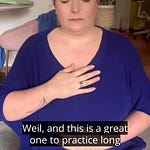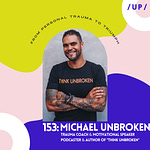In episode 10, Lauren conducts her first international interview with actress Katie Georgiou, who lives in London (UK). Katie has been living with Relapsing-Remitting Multiple Sclerosis (MS) since she was young, and waited 10+ years for her official diagnosis at age 19. In this conversation, she tells us what her flares look and feel like, gives her frank opinion of her experience with the National Health Service (NHS) in the UK, and shares about the perspective shift that enables her to survive with grace (hint: it’s all about taking responsibility for her healing and taking ownership of her condition).
Listen as Katie shares…
- how she first experienced symptoms at the age of 9, but wasn’t properly diagnosed with Relapsing-Remitting MS until she was 19
- that even when she was given her official diagnosis, she was never given an immediate treatment protocol – only prescribed an anti-depressant to assist in reducing the swelling in her brain
- that when she was given a diagnosis, she felt her world fall apart – because nobody told her what to expect or how to cope
- her initial concerns about taking anti-depressants as an artist
- what a flare looks like for her: incontinence, often uncontrolled muscle action, tingling and numbness in her extremities, slurred speech
- the key to her survival: finding the humor in her illness, and OWNING her condition without apology
- that, before she was able to openly acknowledge, cope with, and treat her condition, she felt like she was living with a monster…her behavior was erratic and she felt out of control (both of her body and of her mind). At this time, her illness had ownership of her – and her stress would increase her symptoms.
- that, as an adult, she was treated with steroids – and that this treatment was not only invasive and inconvenient, but was, at the time, not tested for long-term side effects. This lack of market research gave Katie pause and made her wary of being fed information without further research, and taught her to say NO: because she knows her body better than anyone else.
- her current health protocol: more regimented sleeping and a largely vegetarian diet, resting when she needs to, and taking active steps to control stress
- that she still struggles daily with the the concept of WHEN to share her health story – especially in work situations, where she fears judgment
- that, as an invisibly ill person, you make one of two choices: you become an advocate, or you get on with your life
- that, especially with neurological disorders, positivity of mind, spiritual health, confidence, and a lack of shame are key…but are often lacking in online forums, which can be full of “symptom porn”
- that key to her perspective shift is gratitude. It has allowed her to make peace with living with MS and lighten up, stop judging others for not understanding, and experience her body in a way that enables her to empathize with others
- that she is grateful for the NHS (nationalized health), but sees its downside as well
- that no caregiver has ever asked her about how her illness affects her mood – which is central to the invisible illness experience
- the importance of representation, and our best MS example to-date: President Bartlet in The West Wing
- that stem cell and chemotherapy treatments for MS are not readily available in the UK
- that one of the best things those of us in the invisible illness community can do for ourselves is to become articulate about our needs and experiences – and be willing to share with others, without shame
- that we are ALL WORTHY of respect, care, and love – and that low self-esteem is rampant in the invisible illness community and we have to shift away from it
- the responsibility of artists and creatives to use their platforms to continue the dialogue about invisible illness and “taboo” topics in their work














Share this post